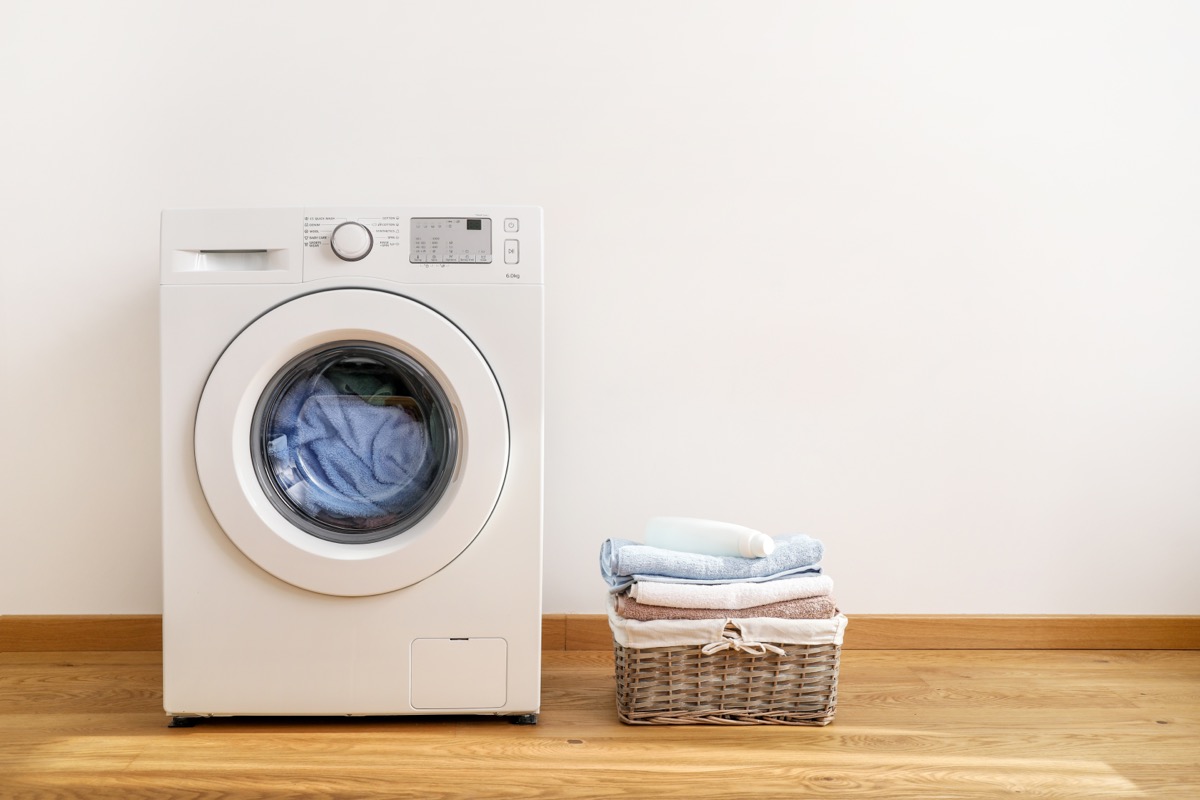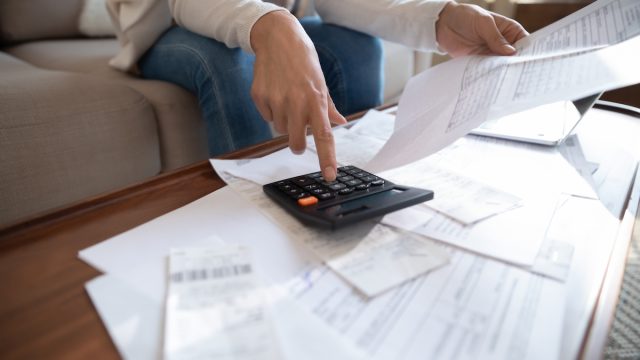8 Reasons to Never Throw Out Your Receipts, Experts Warn
Future you will be glad you held onto them.
It's no secret that many people dislike personal finance. Not only can the topic be confusing (and, let's face it, boring), but it can also spark anxiety and fear. However, the worst thing you can do when it comes to your personal finances is ignore them. To stay financially healthy, you'll want to set up systems that work and check in on your progress regularly. An easy place to start is with your receipts. While you probably don't need to save a proof of purchase for every stick of gum you buy, there are certain receipts you'll want to hold onto. Here, financial experts tell us the primary reasons to save your receipts and how to do it with ease. Following their advice could save you major cash—and headaches—in the future.
READ THIS NEXT: The IRS Just Cautioned Taxpayers Against Doing This.
1
You may need your receipts for taxes.

The primary reason you'll want to save your receipts is for tax purposes. In particular, you'll want to save the receipt for any items that you deduct from your taxes. "This includes receipts for charitable donations, business expenses, and home office expenses," says Michael Collins, CFA, a professor at Endicott College's Gerrish School of Business.
Larry Hendrickson, founder and managing partner of G&H Financial Group in North Canton, Ohio, recommends organizing these receipts in folders. Each time you purchase something you plan to write off on your taxes, you can drop the receipt inside. That way, once tax season rolls around, you'll be ready to file and not left searching your email for proof you donated $500 to charity. "Having these receipts kept in an organized system will make your life along with your CPA's life much smoother," Hendrickson says.
2
Or for an audit.

You may think that once you've done your taxes, you can go ahead and get rid of those receipts. But according to Julien Brault, CEO of personal finance management mobile app Hardbacon, you'll want to hang on to them for six years in case of an audit.
According to the Internal Revenue Service (IRS) website, "Generally, the IRS can include returns filed within the last three years in an audit. If we identify a substantial error, we may add additional years. We usually don't go back more than the last six years."
"Now with digital options for filing, you may benefit from having two copies saved and then shredding any old physical copies after the six-year period," suggests Brault.
3
Receipts can help dispute credit card fraud.

Credit card scams and fraud have become all too common, which is yet another reason why you'll want to keep your receipts. "If any fraudulent charges appear on your statements, these receipts may be used as proof to dispute transactions," notes Ilam Padmanabhan, a tech and financial services industry expert.
4
Or help with reimbursements.

Corporate lunches and office supplies add up—and you'll want to keep the receipts when they do. "Most companies will provide their employee with a company credit card," says Hendrickson. "The purchases on that card need to be tracked with receipts that the employer will need to file for their tax purposes."
If you're not able to produce a receipt, Hendrickson notes your company may require you to reimburse them for the undocumented expense. Of course, that's something you'll want to avoid at all costs. Keep your corporate card receipts in one place and set aside an hour a month to file them per your company's instructions.
READ THIS NEXT: Never Include These 2 Things in Your Will, Experts Warn.
5
You may need to prove an item is under warranty.

Warranties are available for items both big and small—and if something you buy comes with one, you should save the receipt. "In case something breaks or there is a defect during the warranty period, you can easily retrieve the proof of purchase when reaching out to the supplier or service provider," says Lei Han, CPA, associate professor of accounting at Niagara University. Keep a folder labeled "warranties" for easy access.
6
You may need receipts for insurance.

Oftentimes, insurance claims require receipts. "Floods, wildfires, tornados, hurricanes, blizzards, and more are increasingly common," says Tanya Peterson, vice president at FreedomFinancial Network. "If you have been affected by any, be sure to keep all receipts for any purchases made in the aftermath—whether it was for temporary lighting, a hotel stay, or any major repairs." Your insurance company will likely ask for them.
Additionally, if you receive any funds from the Federal Emergency Management Administration (FEMA) to reimburse your losses due to a disaster, Peterson says to keep your receipts showing how you spent the funds. "FEMA can audit your spending for three years," she says.
For more personal finance advice delivered straight to your inbox, sign up for our daily newsletter.
7
You might need to make a return or exchange.

How many times have you wanted to return something, only to have no luck finding the receipt? "You should save or at least know where to locate from your computer your receipts for all purchases for at least 30 to 60 days after a purchase, depending on the return or exchange policy of the vendor," says Han. Keep a physical folder for paper receipts and a digital folder for receipts from online purchases. Et voila, you won't be left scrambling in line at Target.
8
Saving your receipts can help you budget.

The last reason to save your receipts is for simple budgeting purposes. "When you are trying to create a budget or keep to one, hold on to all receipts and keep a spending journal," suggests Peterson. "Many people are surprised to see what they spend their money on each day." Once you have a clear picture of your spending, you can identify places to cut back to meet your financial goals.






















